A pardon in California is a form of post-conviction relief granted by the governor if you were convicted of a crime but then demonstrated a high level of rehabilitation. Obtaining a pardon relieves you of some, but not all, of the collateral consequences of a criminal conviction.
Reasons to apply for a California governor’s pardon
Benefits of a governor’s pardon can include:
- The restoration of California firearm rights, 1 2
- Relief from the duty to register as a sex offender under Penal Code 290 PC, 3
- Improved employment prospects,
- The right to serve on a jury in a California jury trial, 4
- The right to be employed as a county probation officer or a state parole officer, 5
- The right to apply for state professional licensing without automatically being denied a license, 6
- The right not to have credibility as a witness impeached based upon the conviction,7 and
- For lawfully present aliens, a defense to deportation. 8
Am I eligible for a governor’s pardon in California?
If you are convicted of a California crime, you may be able to seek a pardon after a satisfactory period of rehabilitation. Depending on the crime, this period can be anywhere from seven (7) to ten (10) years.9
The clock starts running when you complete probation or parole. During this period, you must not be convicted of any serious crime.
You must also be able to show that you are deserving of such an honor.
According to the California governor’s office:
“A gubernatorial pardon is an honor that may be granted to people who have demonstrated exemplary behavior following their conviction. A pardon will not be granted unless it has been earned.”
To help you better understand how to get a Governor’s pardon in California, our California criminal defense lawyers discuss, below:
- 1. What is a California governor’s pardon?
- 2. What are the advantages of a California governor’s pardon?
- 3. What are the limitations of a California governor’s pardon?
- 4. Can I get a California governor’s pardon?
- 5. How are pardons different from expungements?
- 6. How do I obtain a governor’s pardon in California?
- 6.1. Method 1: Certificate of Rehabilitation
- 6.2. Traditional (direct) pardons
- 6.3. Governor’s pardons based on recommendation of the Parole Board
- 7. How much does it cost to get a governor’s pardon in California?
- 8. How long does it take to get a pardon?
- 9. How easy is it to get a pardon in California?
- 10. What happens after the governor receives a pardon application?
- 11. What happens if my request for a pardon is granted?
- 12. What should I do if I move while a pardon application is pending?
- 13. How does a California governor’s pardon affect immigration?
- 13.1. What deportable crimes are “cured” by a pardon?
- 13.2. Will a pardon stop a removal proceeding?
- 13.3. Crimes that cannot be cured by a pardon for immigration purposes
- 13.4. Can I be deported while my pardon is being considered?
- 13.5. Will a pardoned crime make me inadmissible to the United States?
- 13.6. Can a pardon help me obtain a waiver of inadmissibility?
- 13.7. Does an expungement count as a pardon for purposes of U.S. immigration law?
- 14. How else can I clear a criminal record in California?
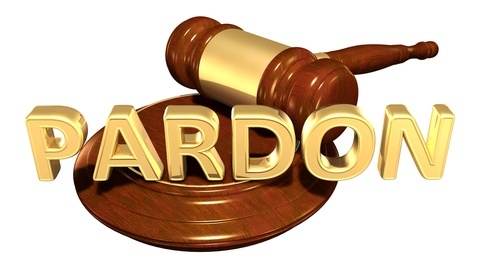
1. What is a California governor’s pardon?
A California governor’s pardon is an acknowledgment from the governor that you have been rehabilitated after a conviction. It relieves you of many, but not all, of the penalties associated with a criminal conviction. 10
The right of the governor to forgive crimes is set forth in Section 8(a) of Article V of the California Constitution, which provides:
“Subject to application procedures provided by statute, the Governor, on conditions the Governor deems proper, may grant a reprieve, pardon, and commutation, after sentence, except in case of impeachment…” 11
Example: When she is 21, Mary steals some valuable antique guns. She is convicted of Penal Code 487, grand theft and sentenced to two years in California state prison.
After completing her sentence, Mary gets her nursing degree. She does not commit any more crimes.
Ten years later, Mary has a stable family and a career as a nurse. But she cannot own a gun without violating Penal Code 29800, California’s “felon with a firearm” law.
So Mary obtains a full and unconditional governor’s pardon, after which she is able to own guns again. 12
Does the relief apply to just one crime or an entire criminal record?
A California governor’s pardon can apply to just one crime or to multiple crimes. Multiple crimes do not necessarily have to result from a single conviction.
Though if you have a long criminal history, you may have a harder time receiving one.
2. What are the advantages of a California governor’s pardon?
Advantages of a California gubernatorial pardon include the restoration of many of the rights lost after a criminal conviction. A pardon is also an affirmation that you have been rehabilitated of a crime. That alone can make one worth getting.
Generally, a pardon is sought to restore rights such as:
- The Second Amendment right to own or possess firearms, 13
- Relief from the duty to register as a California sex offender, 14
- The right to serve on a jury, 15
- The right to be employed as a county probation officer or a state parole officer, 16
- The right to apply for state professional licensing without automatically being denied a license, 17
- The right not to have credibility as a witness impeached based upon the conviction,18 and
- The right, in the case of a lawfully present non-citizen, to avoid deportation. 19
Example: Paul is convicted of Penal Code 314 PC, indecent exposure, a misdemeanor. He serves 6 months in county jail.
After his release, he gets counseling, resumes his professional career, and lives a law-abiding life.
But Paul’s indecent exposure conviction still requires him to register as a sex offender on California’s Megan’s list website. 20
So he applies for a governor’s pardon with the help of a criminal defense lawyer. The lawyer is able to secure Paula pardon that relieves him of the duty to register.
A pardon is not required to restore the right to vote
Some people believe that a governor’s pardon is needed to restore the right to vote after a felony conviction. This is not true.
The right to vote is automatically restored to you once you are
- released from prison and
- successfully discharged from California parole. 21

3. What are the limitations of a California governor’s pardon?
A governor’s pardon restores many rights after a criminal conviction, but it does not restore all of them. Most importantly, it does not remove the conviction from the public record.
Let’s take a closer look at what a pardon cannot do.
3.1. Criminal record not sealed
A governor’s pardon does not
As of January 1, 2018, this is less important than it once was. On that date, California’s new “ban the box” law went into effect. This law controls when an employer can ask about your criminal history.
3.2. Employers can still learn about a conviction
Because a pardon does not erase a criminal record, employers can still learn about the original conviction. Though under California’s “ban the box” law, certain employers are not entitled to ask about any arrest or conviction until very late in the job application process.
What is California’s “ban the box” law?
California’s “ban the box” law prohibits employers from asking about your criminal history unless and until the employer has made a conditional offer of employment. 24 It applies to all employers with five or more employees. 25
Even after making the offer, an employer cannot automatically refuse to hire you because of a conviction. Instead, the employer must do an individualized assessment of you. 26
Once a conditional offer is made (or if the position is one that legally requires a background check) a conviction must be disclosed unless it has also been expunged.27
Should I tell a potential employer about a pardon?
Once a conditional job offer has been made, you can and should tell the employer that your crime has been pardoned. 28 (Note, though, that if the crime has also been expunged it does not need to be disclosed).
This lets the employer know that you have led a productive and law-abiding life for many years following a conviction.
Unless the conviction is related to the job, it should not be used to deny you employment.

3.3. Does not restore gun rights in all cases
A full and unconditional pardon normally restores Second Amendment firearm rights. Though not all pardons are full and unconditional. Some state expressly that they do not restore gun rights.
By law, if you are convicted of certain crimes, you may not have your gun rights restored.
Let’s take a brief look at two such crimes.
3.1.1. Felonies involving the use of a dangerous weapon
By law, a California governor’s pardon may not restore gun rights if you are convicted of a felony involving the use of a dangerous weapon.29
Dangerous weapons include almost two dozen different weapons including:
- Firearms,
- Knives that are illegal in California,
- Concealed explosives, and
- Metal knuckles.30
3.1.2. Crimes of domestic violence
California law permits California gun rights to be restored to you if you are convicted of a misdemeanor crime of domestic violence after a 10-year period.31
Though federal law imposes a lifetime firearms ban after a domestic violence conviction. 32
The only way to remove the federal firearms ban is with a Presidential pardon. Though such pardons are seldom granted.
3.4. Use of a pardoned conviction in a subsequent criminal trial
A pardoned conviction still counts as a prior if you are convicted of a subsequent offense.33
A pardoned conviction may also be used to impeach your credibility if you take the stand.
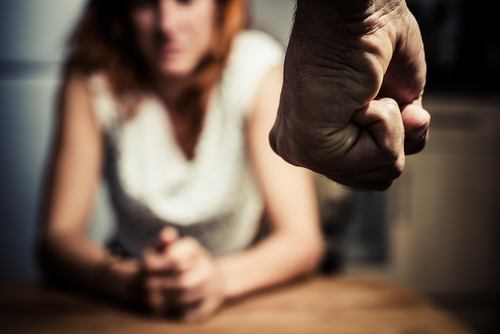
4. Can I get a California governor’s pardon?
Almost anyone convicted of a California crime can seek a pardon after a satisfactory period of rehabilitation. Depending on the crime, this period can be anywhere from seven (7) to ten (10) years from when you complete probation or parole.
We discuss the specific periods of rehabilitation in Section 6.1.3 below.
Generally, however, a pardon is only granted if:
- It has been at least 10 years since you completed probation or parole, and
- You have not committed any serious crimes during that entire 10-year period.
A pardon is entirely within the California governor’s discretion. The governor may grant as many or as few as they like (or even none at all).
4.1. Am I ineligible for a pardon?
A California governor’s pardon is NOT available if:
- The conviction was for a federal or military offense, or
- The conviction was for violating the laws of another state or country.
If you are convicted in another state, you must obtain a pardon in that state.
Federal and military crimes can only be pardoned by the president of the United States.
4.2. What if I have more than one felony?
The governor may not grant a pardon to you if you were convicted of more than one felony unless the California Supreme Court recommends one.34
The Governor may – but is not obligated to — seek such a recommendation from the court.
5. How are pardons different from expungements?
Pardons are usually sought by people who do not qualify to have their crimes dismissed (expunged) in California. 35
In most cases, an expungement is more powerful than a pardon. Though there are some things a pardon can do that an expungement cannot.
5.1. Limitations on a California expungement
An expungement removes a conviction from the public record. In general, it means the conviction does not count for most purposes.
Though an expungement cannot:
- Remove the duty to register as a sex offender, and
- Prevent deportation of a lawfully present alien.
A pardon cannot always remedy these two situations, but for many crimes, it can.
For more information on relief from the duty to register, please see our article “How to get removed or excluded from California ‘Megan’s Law’ website.”
For a more detailed discussion of the immigration consequences of a pardon, please see Section 13 below.
5.2. Who can get an expungement in California?
A California expungement (dismissal) is available only to you if:
- you were convicted of a misdemeanor or a California “wobbler” felony (that is, one that could have been charged as a misdemeanor), and
- you were sentenced to county jail, probation, and/or a fine (but not to prison or another California state agency).
6. How do I obtain a governor’s pardon in California?
There are three possible ways to get a California governor’s pardon:
- File a petition for a Certificate of Rehabilitation (“COR”) from the superior court,
- File an application directly with the governor’s office, or
- Receive a recommendation for a pardon from the California Board of Parole Hearings (if you are currently in prison).
While it might seem as if a direct application would be the best approach, the choice is not up to you.
Let’s take a closer look at each of these three methods.
6.1. Method 1: Certificate of Rehabilitation
If you are eligible to seek a Certificate of Rehabilitation, you must obtain one in order to be considered for a pardon.
Step by step instructions for obtaining a Certificate of Rehabilitation is set forth in Section 6.1.4 below.
A COR becomes an automatic application for a pardon
When a Certificate of Rehabilitation is granted, the court forwards it to the governor’s office. It then automatically becomes a recommendation and application for a pardon.
Note that it is an automatic application for a pardon only. It is not a guarantee that a pardon will be granted.
6.1.1. Am I eligible for Certificate of Rehabilitation?
You are eligible for a California Certificate of Rehabilitation if any of the following applies:
- You were convicted of a felony and sentenced to prison or another California state penal institution or agency, or
- You were convicted of a felony and sentenced to probation AND the conviction has been expunged,36 or
- You were convicted of a misdemeanor sex offense listed in Penal Code 290 AND the conviction has been expunged.37
You must also meet additional eligibility requirements as follows:
- You have not been incarcerated since completion or dismissal of your sentence;
- You are not on probation for another felony,
- You have resided in California for at least five (5) years before petitioning for a COR;
- You have been rehabilitated for a certain number of years following your release from custody, probation, or California parole (as set forth in Section 6.3, below); and
- You are not otherwise ineligible to receive a certificate (as discussed below).
6.1.2. Am I ineligible for a COR?
You are not eligible for a California Certificate of Rehabilitation if:
- You were convicted of a misdemeanor offense (other than a sex offense specified in Penal Code 290);
- You are serving mandatory life parole,
- You were sentenced to death,
- You are in the military,
- You committed a federal crime or a crime in any other jurisdiction other than California, or
- You were convicted of any of the following sex crimes:
- Penal Code 286(c), sodomy with a child or sodomy by force or threat,
- Penal Code 288, lewd acts with a child under 14,
- Penal Code 287(c), oral copulation with a child or oral copulation by force or threat,
- Penal Code 288.5, continuous sexual abuse of a child, or
- Penal Code 289(j), forcible sexual penetration of a child.
6.1.3. How long must I wait before applying for a Certificate of Rehabilitation?
To qualify for a certificate of rehabilitation in California, an application must be able to prove a “satisfactory period of rehabilitation.”
This period includes:
- The five (5) year-California residency requirement, PLUS
- An additional two (2) to five (5) years, depending on the crime you were convicted of.
The additional time period begins running on the date on which you are released from the supervision of the court. That is, it begins running on the first day after:
- Completion of parole,
- Release from community supervision, or
- Release from mandatory supervision.
Note that the applicable period plus the five-year residency is the MINIMUM period that must have passed in order for you to receive a certificate of rehabilitation.
6.1.3.1. Crimes with a nine-year waiting period
Certain crimes require at least nine (9) years before you can apply for a COR. This is the five-year residency requirement plus a rehabilitation period of an additional four (4) years.
This nine-year period applies if you were convicted of:
- Penal Code 187, murder,
- Penal Code 209, aggravated kidnapping,
- Penal Code 219, derailing or wrecking a train,
- Penal Code 4500, assault with force likely to cause great bodily injury,
- Penal Code 12310, use of explosives or destructive devices causing death, mayhem, or great bodily injury,
- Military and Veterans Code 1672(a), acting or failing to act so as to cause another person’s death, or
- Any other offense that carries a life sentence.38
6.1.3.2. Crimes with a ten-year waiting period
Certain sex crimes require passage of at least ten years before you can apply for a COR. This is the five-year residency requirement plus a rehabilitation period of an additional five (5) years.
This ten-year period applies if you were convicted of an eligible California sex offense other than:
- Certain violations of California’s child pornography laws under Penal Code 311.2,
- Violation of California’s laws against “sexual exploitation of a child,” or
- Penal Code 314, obscene conduct / indecent exposure.
(These last three offenses require only an additional two (2)-year period, as noted below).
6.1.3.3. Crimes with a seven-year waiting period
All other California offenses require that at least seven years pass before you can apply for a COR. This is the five-year residency requirement plus a rehabilitation period of an additional two (2) years
6.1.3.4. Chart of minimum rehabilitation periods
These minimum rehabilitation periods (including the five-year residency requirement) can be summarized as follows:
| Type of Offense | Minimum Rehabilitation Period for California Certificate of Rehabilitation |
| Murder, aggravated kidnapping, train wrecking, assault likely to cause great bodily injury, acts involving explosives or destructive devices, other offenses carrying a life sentence | Nine (9) years |
| Sex crimes requiring PC 290 registration, EXCEPT certain PC 311 child porn crimes, sexual exploitation of a child, and PC 314 obscene conduct/indecent exposure | Ten (10) years |
| All other crimes (including certain PC 311 child porn crimes, sexual exploitation of a child, and PC 314 obscene conduct/indecent exposure) | Seven (7) years |
6.1.4. Step-by-step instructions for applying for a Certificate of Rehabilitation in California
As discussed above, if you are eligible for a Certificate of Rehabilitation, you must petition for one in order to be eligible for a pardon.
If you are not eligible for a COR, you may apply for a traditional (direct) pardon, as set forth in Section 6.2.2, below.
6.1.4.1. Obtaining and filing a petition for a COR
A petition for a certificate of rehabilitation can be obtained from and filed with the California Superior Court for the county in which you reside.
There is no filing fee and there are no court costs to obtain a certificate of rehabilitation.
You can find the right court by checking the Judicial Branch of California’s “Find My Court” webpage.
6.1.4.2. The COR hearing
The court may choose to schedule a hearing on whether a COR should be granted. If so, the court will notify
- the governor’s office and
- the district attorney of each county in which you were convicted.
The governor’s office and/or D.A. may or may not choose to contest the issuance of a COR.
6.1.4.3. Factors the judge will consider
A judge can consider any relevant evidence in deciding whether to grant a petition for a Certificate of Rehabilitation. Items you may wish to submit to the court include:
- The record of the trial and/or court proceedings,
- Proof of employment and/or enrollment in school,
- Character references from friends, family, employers, co-worker, teachers, a prison psychologist, etc., and
- Any other evidence of good character and/or rehabilitation.
The court will consider this evidence along with:
- Your criminal history (including the facts and severity of the crime),
- Your prison record,
- How long it has been since you completed probation or parole,
- Reason for seeking a COR,
- Family and community ties,
- Work history,
- Volunteer work, and
- Arguments (if any) presented by the D.A.
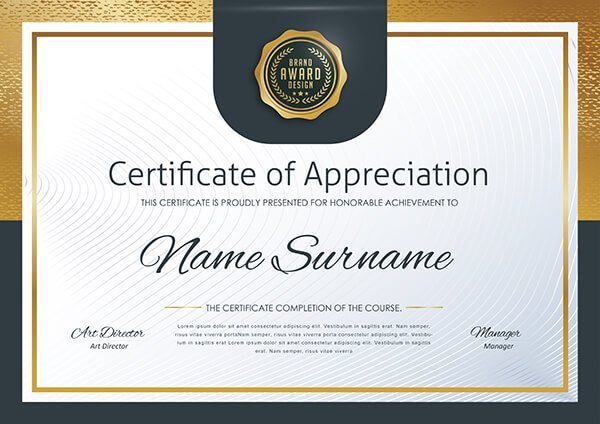
6.1.4.4. What happens if the court grants a Certificate of Rehabilitation?
If the court grants a Certificate of Rehabilitation, it will forward a copy to the California governor’s office. It will then automatically become an application for a pardon. No further action is needed.
Note that the Governor is not legally required
- to grant a pardon or
- even to consider the application.
6.1.4.5. What can I do if the court denies my petition?
It is possible to appeal a denial of a Certificate of Rehabilitation. Unlike filing a petition, there is a fee to file an appeal.
A better alternative is usually to wait and petition again at a later date.
6.2. Traditional (direct) pardons
If you are not eligible for a certificate of rehabilitation, you may seek a so-called “traditional pardon,” also known as a “direct pardon.”
6.2.1. Am I eligible for a direct pardon from the governor?
The traditional pardon procedure is available if you are not eligible for a Certificate of Rehabilitation, including:
- if you do not satisfy the residency requirement for a COR, and
- if you are convicted of a sex crime against children under Penal Code section PC 286(c), 288, 287(c), 288.5 or 289(j).
6.2.2. How to apply for a traditional (direct) pardon in California
If you are not eligible for a Certificate of Rehabilitation, you may apply directly to the California governor’s office for a pardon.
You can obtain an application at http://www.gov.ca.gov. Or you can request an application in writing from the following address:
Governor’s Office
State Capitol
Attention: Legal Affairs
Sacramento, CA 95814
There is no fee to apply for a traditional pardon through the governor’s office.
6.3. Governor’s pardons based on the recommendation of the Parole Board
Penal Code 4801 authorizes California’s parole board to recommend pardons for state prisoners. The board may recommend one based on:
- Good conduct,
- “Intimate partner battering and its effects,” or
- Any other cause.39
What is “intimate partner battering”?
For purposes of PC 4801, “intimate partner battering and its effects” includes:
“evidence of the nature and effects of physical, emotional, or mental abuse upon the beliefs, perceptions, or behavior of victims of domestic violence if it appears the criminal behavior was the result of that victimization.”40
California’s domestic violence laws define an “intimate partner” as:
- A spouse or former spouse,
- A current or former registered domestic partner,
- A current or former cohabitant (live-in partner),
- A current or former fiancé(e)
- A person with whom you have, or used to have, a serious dating relationship, or
- The father or mother of your child.41
Thus battered intimate partners can include people who were victims of acts such as:
- Penal Code 273.5, corporal injury on a spouse or cohabitant, or
- Penal Code 243(e)(1), domestic battery.
For more information, please consult with an experienced California parole lawyer.
7. How much does it cost to get a governor’s pardon in California?
There are no filing fees or court costs to apply for or obtain a
- California Certificate of Rehabilitation or
- governor’s pardon.
If you choose to be represented by a lawyer (which is recommended), you must usually pay for your lawyer’s services.
8. How long does it take to get a pardon?
There is no fixed period of time in which the governor must act on a pardon application. In fact, the governor is not required to act at all.
So, unfortunately, the amount of time a pardon will take cannot be predicted.
9. How easy is it to apply for a pardon in California?
No one has the absolute right to a pardon in California. They are entirely within the governor’s discretion.
Historically, some governors have been more inclined than others to grant one.
For instance, between 2011 and 2017, Governor Jerry Brown issued over 1,000 pardons.42
By contrast, during their eight collective years as governor, Gray Davis and Arnold Schwarzenegger issued just 15.43
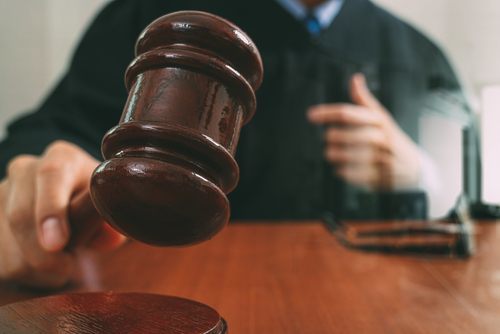
10. What happens after the governor receives a pardon application?
10.1. Optional request for more facts
After receiving your pardon application, the governor may request facts about your case. Such facts may be furnished by:
- The judge of the court in which you were convicted, or
- The district attorney who prosecuted the case.44
The judge or the D.A. must then promptly provide the governor with:
- A summarized statement of the facts proved at trial (if there was a trial),
- A statement of any other facts bearing on whether the governor ought to grant or refuse the request for a pardon, and
- The judge’s or D.A.’s recommendation for or against granting a pardon and the reason for such recommendation.45
10.2. Opportunity for the D.A. to comment
The D.A. must be given at least 10 days advance notice before the governor may grant a pardon.46
The 10-day notice requirement may be waived if:
- There is imminent danger of your death, or
- Your term of imprisonment is within 10 days of its expiration.47
10.3. Optional review by the Parole Board
The Governor may also request an investigation by the California Board of Parole Hearings. If so requested, the Board will
- investigate the pardon application and
- make a recommendation to the governor. 48
During its investigation, the Board may take testimony and examine witnesses under oath. 49
The governor is not obligated to seek a Parole Board review or recommendation.
11. What happens if my request for a pardon is granted?
Once a pardon has been granted, the governor’s office notifies
These agencies will then update their records to reflect the pardon. (The conviction itself will remain on your criminal record.) The governor’s office must also file a copy with the California Secretary of State.
Finally, the governor’s office must provide the California State Legislature with a report listing
- all granted pardons and
- the reasons they were granted.
11.1. How long will it take to update my record?
It generally takes 30-60 days for agencies to receive notice of a granted pardon. It will then become a matter of public record. Certain personal information (such as home address) will be removed prior to the record being made public.
You can check to make sure your records have been updated by requesting a criminal history report from the California Department of Justice.
11.2. Will I be notified if my application for a pardon is denied?
Yes. Though the governor is not required to provide the reasons for the denial.
12. What should I do if I move while a pardon application is pending?
If you move while your pardon application is pending, you must notify the governor’s office of your new address in writing.
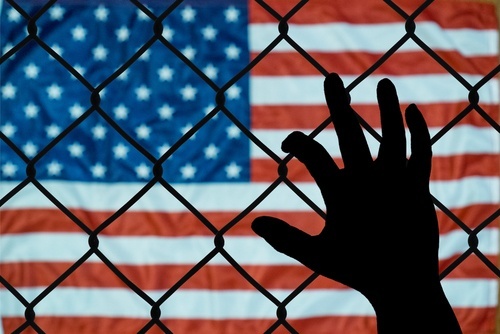
13. How does a California governor’s pardon affect immigration?
A California governor’s pardon can often prevent your deportation if you are lawfully present. In order for it to be a defense to removal (deportation) all of the following must apply:
- The pardon must be full and unconditional,
- The conviction must be for a crime that can be “cured” by a pardon (discussed below), and
- You must be a lawful permanent resident (green card holder) or otherwise lawfully present in the United States. 50
13.1. What deportable crimes are “cured” by a pardon?
A pardon prevents you from being deported for any crime specified in Section 237 of the United States Immigration and Nationality Act. 51
INA 237 prevents your deportation based upon a pardoned convicted for any:
- So-called “aggravated felony,”
- So-called “crime involving moral turpitude” (“CIMT”), or
- High-speed border chase.52
Federal law designates some 30 crimes as aggravated felonies. 53 These include
- white-collar crimes,
- sex crimes, and
- violent felonies such as murder and kidnapping.
“Crimes involving moral turpitude” are those that involve:
- dishonesty,
- fraud, or
- antisocial behavior that harms others.
There is some overlap between these two categories. So some crimes are both an aggravated felony and a CIMT. Fortunately, both categories can be “cured” by a pardon.
13.2. Will a pardon stop a removal proceeding?
A pardon does not prevent the federal government from initiating a removal proceeding. Though it acts as a defense if:
- The deportation is based on a conviction which was pardoned, and
- The conviction was for a crime that can be “cured” by a pardon.
Note that the government can still deport you if there is another basis for removal, such as:
- Conviction of a crime that cannot be cured by a pardon,
- You are addicted to or abuse drugs, 54
- You are unlawfully in the United States,
- You have committed a deportable act of immigration fraud,55 or
- There is a security-related ground for removal (such as spying, terrorism or religious persecution). 56
13.3. Crimes that cannot be cured by a pardon for immigration purposes
Certain offenses can still be used to deport you, even if you have been fully and unconditionally pardoned by California’s governor.
Such crimes include, without limitation:
- Any offense involving a controlled substance, other than a single drug offense involving possession for your own use of 30 grams or less of marijuana,57
- Failure to register as a sex offender, 58
- Most firearms offenses, 59
- Domestic violence, stalking, or child abuse, 60 and
- Human trafficking. 61
13.4. Can I be deported while my pardon is being considered?
INA section 237 does not provide for an automatic stay of removal when a pardon application is filed. A stay of removal acts as a temporary “time-out” to let you stay in the country while a petition is being considered.
Thus if you are seeking a pardon to avoid deportation, you should file separately for a stay of removal.
A stay should also be sought if you receive a notice of removal while a pardon application is pending.
13.5. Will a pardoned crime make me inadmissible to the United States?
A pardoned crime can be used to deny you admissibility to the United States — at least in the federal Ninth Circuit, which includes California. Other circuits may interpret the law differently.
Though the Ninth Circuit Court of Appeals has held that aliens who were not lawfully admitted to the U.S. are not entitled to the same constitutional protections as those who are here lawfully. 62
Thus in California, a pardoned conviction can still be used as grounds to:
- Deny you admission to the United States, or
- Prevent you from adjusting status from unlawful to lawful. 63
Remember — immigration law is constantly changing.
Thus we cannot stress how important it is for you to consult with an experienced California defense and immigration lawyer before entering a plea in a criminal case if you are a non-citizen.
13.6. Can a pardon help me obtain a waiver of inadmissibility?
If you are inadmissible based on a pardoned crime in California, you may be able to obtain a 212h hardship waiver or another waiver of inadmissibility.
To apply for such waivers, you may be required to establish good moral character.
A pardon shows that the state’s highest elected official believes you are of good moral character.
While not binding on the U.S. government, it is strong evidence to support a waiver of inadmissibility.
13.7. Does an expungement count as a pardon for purposes of U.S. immigration law?
No. With very limited exceptions, an expungement cannot make a crime “non-deportable.” 64
The main exception is a conviction for first-time simple possession of narcotics.65
Otherwise, the Immigration and Nationality Act only provides a defense for deportable crimes that are pardoned by the President of the United States or a state governor.66
14. How else can I clear a criminal record in California?
Reduce a felony conviction to a misdemeanor
You may be eligible to get a California felony conviction reduced to a misdemeanor and then dismissed.67
This procedure is available if you:
- were convicted of a “wobbler” crime as a felony, and
- were sentenced to and complete felony probation for the offense.68
Seal and destroy an arrest record
If you were arrested but never convicted (or your conviction was vacated on appeal), you can have your California arrest record sealed and destroyed.69
If you were adjudicated a juvenile delinquent, you may be eligible to have your juvenile records sealed and destroyed.70 You qualify to have a juvenile record sealed if:
- you are 18 or older OR five years have passed since the jurisdiction of the juvenile court terminated;
- you have not been convicted of a crime involving moral turpitude as an adult; and
- The original crime was not a particularly serious offense (such as murder, torture or robbery) committed after you turned 14.
Get a California governor’s commutation
If you are currently serving time, you can apply to get your sentence commuted by California’s governor.
Unlike a Certificate of Rehabilitation or a governor’s pardon, a commutation does not restore lost civil rights.
Though it can reduce or eliminate your sentence or make you eligible for immediate parole consideration.
Legal References
- Penal Code 4852 PC, Section 4852.17 PC – Report of California certificate of rehabilitation or pardon; rights restored by pardon; exceptions, endnote 2, above. See also Penal Code 4853 PC – Restoration of rights, privileges and franchises [upon obtaining a governor’s pardon]; exceptions, endnote 3, above.
- Same.
- Penal Code 290.5 PC – Pardon or certificate of rehabilitation; relief from duty to register.
- Same.
- Government Code 1029 GC.
- Business and Professions Code 480 BPC – Acts disqualifying an applicant.
- Evidence Code 788 EC.
- But see Penal Code 4853 PC: “In all cases in which a full pardon has been granted by the Governor of this state or will hereafter be granted by the Governor to a person convicted of an offense to which the pardon applies, it shall operate to restore to the convicted person, all the rights, privileges, and franchises of which he or she has been deprived in consequence of that conviction or by reason of any matter involved therein; provided, that nothing herein contained shall abridge or impair the power or authority conferred by law on any board or tribunal to revoke or suspend any right, privilege or franchise for any act or omission not involved in the conviction; provided further, that nothing in this article shall affect any of the provisions of the Medical Practice Act (Chapter 5 (commencing with Section 2000) of Division 2 of the Business and Professions Code) or the power or authority conferred by law on the Board of Medical Examiners therein, or the power or authority conferred by law upon any board that issues a certificate which permits any person or persons to apply his or her or their art or profession on the person of another.”
- See discussion in Section 6.1.3, below.
- Same.
- California Constitution Article V SEC. 8(a): “Subject to application procedures provided by statute, the Governor, on conditions the Governor deems proper, may grant a reprieve, pardon, and commutation, after sentence, except in case of impeachment. The Governor shall report to the Legislature each reprieve, pardon, and commutation granted, stating the pertinent facts and the reasons for granting it. The Governor may not grant a pardon or commutation to a person twice convicted of a felony except on the recommendation of the Supreme Court, 4 judges concurring.”
- Penal Code 4854 PC: “In the granting of a pardon to a person, the Governor may provide that the person is entitled to exercise the right to own, possess, and keep any type of firearm that may lawfully be owned and possessed by other citizens; except that this right shall not be restored, and Sections 17800 and 23510 and Chapter 2 (commencing with Section 29800) of Division 9 of Title 4 of Part 6 shall apply, if the person was ever convicted of a felony involving the use of a dangerous weapon.”
- Same.
- Penal Code 290.5 PC – Pardon or certificate of rehabilitation; relief from duty to register.
- Same.
- Government Code 1029 GC.
- Business and Professions Code 480 BPC – Acts disqualifying an applicant.
- Evidence Code 788 EC.
- But see Penal Code 4853 PC: “In all cases in which a full pardon has been granted by the Governor of this state or will hereafter be granted by the Governor to a person convicted of an offense to which the pardon applies, it shall operate to restore to the convicted person, all the rights, privileges, and franchises of which he or she has been deprived in consequence of that conviction or by reason of any matter involved therein; provided, that nothing herein contained shall abridge or impair the power or authority conferred by law on any board or tribunal to revoke or suspend any right, privilege or franchise for any act or omission not involved in the conviction; provided further, that nothing in this article shall affect any of the provisions of the Medical Practice Act (Chapter 5 (commencing with Section 2000) of Division 2 of the Business and Professions Code) or the power or authority conferred by law on the Board of Medical Examiners therein, or the power or authority conferred by law upon any board that issues a certificate which permits any person or persons to apply his or her or their art or profession on the person of another.”
- Penal Code 290 PC – Sex offender registration act.
- Elections Code 2101 EC – Entitlement; prerequisites.
- See Penal Code 851.87 PC.
- Penal Code 1203.4 PC
- Government Code 12952 GC, which resulted from passage of California AB 1008. AB 1008 amended the California Fair Employment and Housing Act
- Same.
- Government Code 12952(c).
- Government Code 12952(b).
- California Penal Code 4852.17 PC.
- Penal Code 4854: “In the granting of a pardon to a person, the Governor may provide that the person is entitled to exercise the right to own, possess, and keep any type of firearm that may lawfully be owned and possessed by other citizens; except that this right shall not be restored, and Sections 17800 and 23510 and Chapter 2 (commencing with Section 29800) of Division 9 of Title 4 of Part 6 shall apply, if the person was ever convicted of a felony involving the use of a dangerous weapon.”
- See Penal Code 16590.
- Penal Code 29805 PC.
- 18 U.S.C. 922(g).
- How to Apply for a Pardon, page 3. See also Federal Rule of Evidence 609(c) — Effect of a Pardon, Annulment, or Certificate of Rehabilitation.
- Penal Code 4802 PC.
- Dismissal of a conviction is authorized by Penal Code 1203.4 PC.
- See Penal Code 1203.4.
- Penal Code 290 includes a large number of sex crimes, including most violations of California’s laws against rape, sexual battery, and sex crimes involving minors. See also Penal Code 1203.4.
- Penal Code 4852.03 PC.
- Penal Code 4801(a).
- Same.
- See, e.g., Penal Code 273.5(b).
- Sacramento Bee, “Defying Trump again, Jerry Brown pardons immigrants about to be deported.”
- Same.
- Penal Code 4803 PC.
- Same.
- Penal Code 4804 PC.
- Penal Code 4806.
- Penal Code 4812.
- Same.
- Immigration and Naturalization Act (INA) 237(a)(2)(A)(vi), codified at 8 U.S.C. 1227(a)(2)(A)(vi). See also, Matter of Suh, 23 I. & N. Dec. 626 (BIA 2003)
.
- As noted in endnote 50, INA 237 is codified in 8 USC 1227.
- See endnote 50.
- 8 U.S. Code 1101(a)(43).
- INA 237(a)(2)(B)(ii), 8 U.S.C. 1227(a)(2)(B)(ii).
- INA 237(a)(3)(C) and (D), 8 U.S.C. § 1227(a)(3)(C) and (D).
- INA 237(a)(4), 8 U.S.C. 1227(a)(4).
- INA 237(a)(2)(B)(i), 8 U.S.C. 1227(a)(2)(B)(i).
- INA 237(a)(2) )(A)(v) and (vi), U.S.C. 1227(a)(2)(A)(v) and (vi).
- INA 237(a)(2)(C)and (vi), U.S.C. 1227(a)(2)(C).
- INA 237(a)(2)(E), U.S.C. 1227(a)(2)(E).
- INA 237(a)(2)(F), U.S.C. 1227(a)(2)(F).
- Alvarez-Garcia v. Ashcroft, 378 F.3d 1094, 1097 (9th Cir. 2004)
- Aguilera-Montero v. Mukasey (9th Cir. 2008).
- See Ramirez-Castro v. INS, 287 F.3d 1172 (9th Cir. 2002). (“Petitioner raises a single issue in this appeal: whether an order of a California state court, expunging his conviction after successful completion of probation, eliminates the immigration consequences of that conviction. We conclude that the answer to that question is ‘no.'”).
- Same. See also Federal First Offender Act and Lujan-Armendariz v. INS, 222 F.3d 728, 734 (9th Cir.2000).
- See endnote 50.
- Penal Code 17(b) PC.
- Same.
- Penal Code 851.87 PC
- Welfare and Institutions Code 781 WIC.
